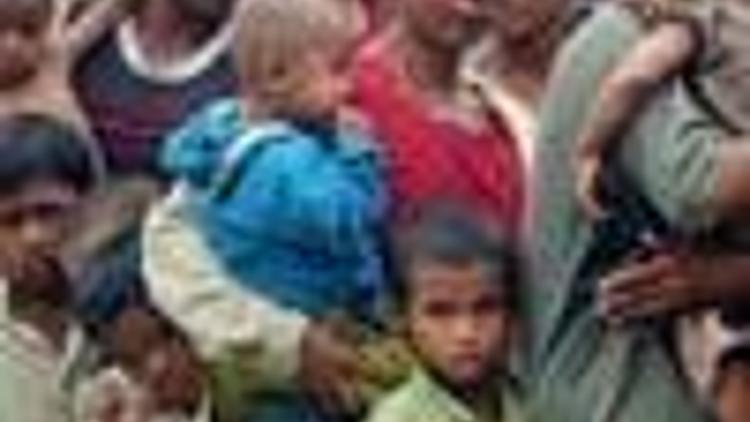UN says up to 2.5 million affected in Myanmar
Güncelleme Tarihi:

The United Nations said on Wednesday up to 2.5 million people might have been affected by the Myanmar cyclone and proposed a high-level donors conference as the Myanmar junta again limited foreign aid.
The European Union's top aid official said the military government's restrictions on foreign aid workers and equipment were increasing the risk of starvation and disease.
U.N. humanitarian affairs chief, John Holmes told reporters between 1.6 and 2.5 million people were "severely affected" by Cyclone Nargis and urgently needed aid, up from a previous estimate of at least 1.5 million.
Thai Prime Minister Samak Sundaravej met Myanmar Prime Minister Thein Sein in
The International Federation of the Red Cross estimated on the basis of reports from 22 organizations working in
In
Ban spoke to reporters after meeting with representatives of
Britain's U.N. ambassador, John Sawers, however, indicated that the high-level conference would be more than a donors' meeting, calling it a "major international meeting" in line with Prime Minister Gordon Brown's calls for a U.N. summit on coordinating aid efforts in Myanmar.
Ban also proposed appointing a joint coordinator from the U.N and the Association of Southeast Asian Nations to oversee aid delivery and said he would soon send Holmes to
However, Ban, Sawers and U.S. Ambassador Zalmay Khalilzad all said failure to properly handle the crisis would inevitably politicize it.
"The way it will get politicized is if ... assistance is not allowed to arrive in a timely manner to save lives, and no time should be lost," Khalilzad said. "The
TRICKLE OF AID
Nearly two weeks after the deadly cyclone swept through the heavily populated
Samak told reporters in
Louis Michel, the top European Union aid official, disagreed. "There is a risk of water pollution. There is a risk of starvation because the storages of rice have been destroyed," he told reporters in
Adm. Timothy Keating, the commander of
A senior
The official said there were reports that some 230 camps had been set up to house more than 230,000 displaced people. "They're springing up all over the place," he said. "The problem they have is a lack of water and sanitary facilities."
Officials said despite reports that some supplies were being stolen or diverted by the army, the humanitarian needs were so great that they would keep making deliveries -- while continuing to urge that
World Food Program chief, Josette Sheeran said in
One group of Christian doctors has been treating children in churches, operating below the government's radar. "We have to try to do something," said one of the doctors, giving children diarrhea medicine in a church north of
More heavy rain and winds were forecast in the delta as a tropical depression moved in, but the U.N. weather agency discounted fears a new cyclone was forming.
In a gesture to critics,
Photo: AFP

